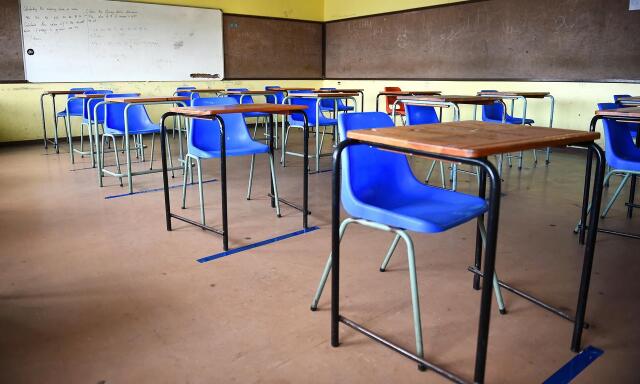The Department of Basic Education has distanced itself from a circular that is making the rounds on social media claiming that the department encourages and facilitates pupils to discover their sexual orientation.
THE DEPARTMENT of Basic Education (DBE) has distanced itself from a circular that is making the rounds on social media claiming that the department encourages and facilitates pupils to discover their sexual orientation.
The department declared the circular fake and called on the public not to be duped into believing its content.
“The circular seems to be directed at school administrators, principals and educators, making pronouncements effective from 2024,” the department said in a statement.
The ministry said it had developed two draft documents, the Protocol for the Elimination of Unfair Discrimination in Schools and Guidelines for the Socio-Educational Inclusion of Diverse Sexual Orientation, Gender Identity, Expression and Sex Characteristics (SOGIESC) in Schools.
“The DBE is currently undertaking stakeholder consultations regarding these two documents in districts and provinces, as directed by the Heads of Education Departments Committee (Hedcom) and the Council of Education Ministers (CEM),” it said.
The DBE said it was compiling a log of comments from the consultations and would present it to the CEM for approval.
“The documents are a product of the collaborative effort with members of the Social Inclusion in Education Working Group (SIiEWG) supported by the South African Council for Educators (SACE), South African Human Rights Commission (SAHRC), Commission on Gender Equality (CGE), and Equal Education Law Centre (EELC).
“These two documents are developed in response to the litigation previously levelled against the Provincial Education Departments (PEDs) for poor observance of the human rights of children with diverse sexual and gender identities in schools, and the need for the DBE to ensure the basic education, as a public service, remains human rights-compliant,” it said.
According to the DBE, seven provinces had undertaken stakeholder consultations, with the remainder of Limpopo and Mpumalanga likely to conclude them before the end of June 2023.
The department said it had advanced the recommendations to guide schools on the elimination of unfair discrimination since the education minister established a report in 2016 to look into racism, sexism, and other forms of discrimination in learning and teaching support materials (LTSM) and textbooks.
“The intention is to collaborate with LTSM publishers to review prejudiced content in LTSM and textbooks,” it added.
It further urged the public to note the following:
– The DBE has the mandate and obligation to protect the constitutional rights of all children in their diversity.
– These rights are enshrined in the Constitution of the Republic of South Africa, 1996, and some legislative and policy frameworks such as the Public Service Act 103 of 1994, the South African Schools Act 84 of 1996, the Children’s Act 38 of 2005, Policy on the South African Standard for Principalship, the Professional Teaching Standards of SACE, and the SA National action plan to combat racism, discrimination, xenophobia and related intolerances.
– This social inclusion work of the DBE is supported by regional, continental, and global instruments such as the UN Convention on the Rights of the Child (CRC) of 1990, the African Charter on the Rights and Welfare of the Child of 1990, the Universal Declaration of Human Rights of 2000, as well as the Yogyakarta Charter, adopted in 2007, emphasising the need for, among others, social inclusion of SOGIESC in schools.
The department called on all members of the public to treat this matter responsibly, as it pertains to the protection of the Constitution, and also to allow stakeholders and public comments to conclude.








